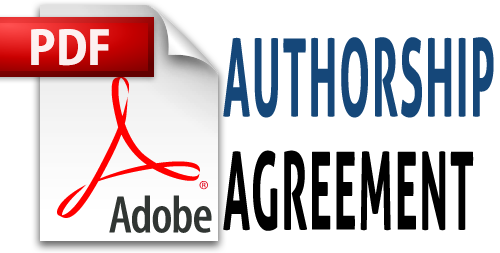TEACHER PROFESSIONAL LEARNING IN THE PERSPECTIVE OF EDUCATIONAL TECHNOLOGY
 Wawan Krismanto(1*)
Wawan Krismanto(1*)
(1) Universitas Negeri Makassar
(*) Corresponding Author
 Abstract viewed : 3340
|
Abstract viewed : 3340
|  PDF downloaded : 571
PDF downloaded : 571
Abstract
Teachers' increasingly massive and diverse use of gadgets allows their facility to be directed at teacher learning activities to improve their competence and professionalism. This research explores the professional learning of technology-based teachers from the perspective of learning technology. Apart from the fact that publication on this topic is still limited, this study is also essential as a foundation, framework, or conceptual framework for technology-based teacher professional development research. To achieve the objectives of this research, a qualitative approach through the method of literature study or library research is a research method that is considered relevant. Literature data is collected through books, literature, notes, and relevant previous research reports. The research procedure is reading, taking notes, or recording, then inventorying and processing it into research data. The research results concluded that teacher professional development shifted into professional learning. The process is conditioned and built actively, self-regulated, sustainable, and based on social and contextual processes according to the teacher's problems and needs. The learning technology perspective views that professional teacher learning not only focuses on the results of learning activities but also on processes and resources that are created, managed, and utilized optimally to facilitate various teacher learning activities through different modes or technological devices. Technology provides an opportunity to make teachers' professional learning more inclusive and sustainable. This opens up broad opportunities for future studies on technology-based teacher professional learning in the area or domain of educational technology or instructional technology.
Abstrak.
Penggunaan gadget yang semakin masif dan beragam oleh guru memungkinkan fasilitasnya diarahkan untuk kegiatan pembelajaran guru dalam meningkatkan kompetensi dan profesionalismenya. Penelitian ini bertujuan mengeksplorasi pembelajaran profesional guru berbasis teknologi dari perspektif teknologi pembelajaran. Selain karena publikasi tentang topik ini masih terbatas, penelitian ini juga penting sebagai landasan, kerangka, atau kerangka konseptual untuk penelitian pengembangan keprofesian guru berbasis teknologi. Untuk mencapai tujuan penelitian ini, pendekatan kualitatif melalui metode studi literatur atau studi kepustakaan merupakan metode penelitian yang dianggap relevan. Data pustaka dikumpulkan melalui buku, literatur, catatan, dan laporan penelitian sebelumnya yang relevan. Prosedur penelitiannya adalah membaca, mencatat, atau mencatat, kemudian menginventarisasi dan mengolahnya menjadi data penelitian. Hasil penelitian menyimpulkan bahwa pengembangan keprofesian guru bergeser menjadi pembelajaran profesional. Proses tersebut dikondisikan dan dibangun secara aktif, mandiri, berkesinambungan, dan berdasarkan proses sosial dan kontekstual sesuai dengan permasalahan dan kebutuhan guru. Perspektif teknologi pembelajaran memandang bahwa pembelajaran guru profesional tidak hanya terfokus pada hasil kegiatan pembelajaran tetapi juga pada proses dan sumber daya yang diciptakan, dikelola, dan dimanfaatkan secara optimal untuk memfasilitasi berbagai kegiatan belajar guru melalui berbagai moda atau perangkat teknologi. Teknologi memberikan kesempatan untuk menjadikan pembelajaran profesional guru lebih inklusif dan berkelanjutan. Ini membuka peluang luas untuk studi masa depan tentang pembelajaran profesional guru berbasis teknologi pada bidang atau domain teknologi pendidikan atau teknologi instruksional.
Keywords
References
Bommel, J. Van, & Liljekvist, Y. (2016). Teachers’ informal professional development on social media and social network sites: When and what do they discuss? ERME-Topic Conference: Mathematics Teaching, Resources and Teacher Professional Development, Humboldt-Universität, Berlin.
Brooks, C., & Gibson, S. (2012). Profesional Learning in a Digital Era. Canadian Journal of Learning and Technology / La Revue Canadienne de l’apprentissage et de La Technologie, 38(2), 1–17.
Cameron, S. E. (2011). TEACHERS AS LEARNERS : PROFESSIONAL LEARNING IN THE Submitted by Doctor of Education (Issue March). Australian Catholic University.
Chang, M. C., Shaeffer, S., Al-Samarrai, S., Ragatz, A. B., de Ree, J., & Stevenson, R. (2014). Teacher Reform in Indonesia: The Role of Politics and Evidence in Policy Making. The World Bank.
Chang, M. C., Shaeffer, S., Al-Samarrai, S., Ragatz, A. B., Ree, J. de, & Stevenson, R. (2014). Teacher Reform in Indonesia. The World Bank. https://doi.org/10.1596/978-0-8213-9829-6
Cirocki, A., & Farrell, T. S. C. (2019). Professional development of secondary school EFL teachers: Voices from Indonesia. System, 85, 102111. https://doi.org/10.1016/j.system.2019.102111
Clarke, D., & Hollingsworth, H. (2002). Elaborating a model of teacher professional growth. Teaching and Teacher Education, 18(8), 947–967. https://doi.org/10.1016/S0742-051X(02)00053-7
Coakes, E., & Clarke, S. (2005). Encyclopedia of communities of practice in information and knowledge management. In Encyclopedia of Communities of Practice in Information and Knowledge Management. https://doi.org/10.4018/978-1-59140-556-6
Cole, P. (2012). Linking effective professional learning with effective teaching practice. In Education Services Australia. Education Services Australia.
Coutinho, C. P., & Lisbôa, E. S. (2013). Social networks as spaces for informal teacher professional development: Challenges and opportunities. International Journal of Web Based Communities, 9(2), 199–211. https://doi.org/10.1504/IJWBC.2013.053244
De Smet, V., Gaeremynck, V., Wouters, R., Sleurs, W., Aase Rojkova, M., Baeklund, B., Sperber, B., Vinding, S., Norcliffe, D., Espinet, M., Pujol, R. M., Junyent, M., Ochoa, L., Geli de Ciurana, A. M., Steiner, R., Rauch, F., Palencsar, F., Tischler, K., Radits, F., … Baümler, E. (2008). Competencies for ESD (Education for Sustainable Development) teachers (W. Sleurs, Ed.). Katholieke Hogeschool Leuven.
Desimone, L. M. (2023). Rethinking teacher PD: A focus on how to improve student learning. Professional Development in Education, 49(1), 1–3. https://doi.org/10.1080/19415257.2023.2162746
Easton, L. B. (2008). Teaching: A Developing Profession. Phi Delta Kappa, 89(10), 755–761. https://doi.org/10.1177%2F003172170808901014
Endedijk, M. D., & Cuyvers, K. (2022). Self-Regulation of Professional Learning: Towards a New Era of Research. In Research Approaches on Workplace Learning (Vol. 31, pp. 219–237). Springer.
Gibson, S., & Brooks, C. (2013). Rethinking 21st Century Professional Development. Literacy Information and Computer Education Journal, 4(2), 1064–1073. https://doi.org/10.20533/licej.2040.2589.2013.0141
Green, C. W., & Hurley, T. A. (2006). Promoting Participation in Communities of Practice. In E. Coakes & S. Clarke (Eds.), Encyclopedia of communities of practice in information and knowledge management (pp. 408–418). Ide Group Refrence.
Grimmett, H. (2014). The Practice of Teachers’ Professional Development: A Cultural-Historical Approach. In Sense Publisher. Sense Publisher. https://doi.org/10.1007/978-94-6209-610-3
Harjanto, I., Lie, A., Wihardini, D., Pryor, L., & Wilson, M. (2018). Community-based teacher professional development in remote areas in Indonesia. Journal of Education for Teaching, 44(2), 212–231. https://doi.org/10.1080/02607476.2017.1415515
Hennessey, S., D’Angelo, S., McIntyre, N., Koomar, S., Kreimeia, A., Cao, L., Brugha, M., & Zubairi, A. (2021). Technology, Teacher Professional Development and Low- and Middle-Income Countries: Technical report on systematic mapping review. EdTech Hub. https://docs.edtechhub.org/lib/VTQDT65R
Hoadley, C. (2012). What is a Community of Practice and How Can We Support It ? In S. Land & D. Jonassen (Eds.), Theoretical foundations of learning environments (pp. 287–300). Routledge.
Hoadley, C. M., & Kilner, P. G. (2005). Using technology to transform communities of practice into knowledge-building communities. ACM SIGGROUP Bulletin, 25(1), 31–40. https://doi.org/10.1145/1067699.1067705
Hunzicker, J. (2011). Effective professional development for teachers: A checklist. Professional Development in Education, 37(2), 177–179. https://doi.org/10.1080/19415257.2010.523955
Inovasi, I. for I. S. C. (2019). KKG/KKM/KKKS/KKPS Sebagai Wadah Jejaring Pendukung Pengembangan Keprofesian Berkelanjutan (PKB) (Issue Juni).
Jan, H. (2017). Teacher of 21st Century: Characteristics and Development. Research on Humanities and Social Sciences, 7(9), 50–54.
Januszewski, A., & Molenda, M. (2008). Educational Technology:A Definition with Commentary. In Routledge Taylor & Francis Group. Routledge Taylor & Francis Group.
Kusumawardhani, P. N. (2017). Does teacher certification program lead to better quality teachers? Evidence from Indonesia. Education Economics, 25(6), 590–618. https://doi.org/10.1080/09645292.2017.1329405
Liljekvist, Y., Bommel, J. van, & Olin-Scheller, C. (2017). Professional Learning Communities in a Web 2.0 World: Rethinking the Conditions for Professional Development. In I. H. Amzat & N. P. Valdez (Eds.), Teacher Empowerment Toward Professional Development and Practices (pp. 269–280). Springer Nature Singapore Pte Ltd. https://doi.org/DOI 10.1007/978-981-10-4151-8_18
Littlejohn, A., & Pammer-Schindler, V. (2022). Technologies for Professional Learning. In Research Approaches on Workplace Learning: Professional and Practice-based Learning (Vol. 31). Springer.
Louws, M. L., van Veen, K., Meirink, J. A., & van Driel, J. H. (2017). Teachers’ professional learning goals in relation to teaching experience*. European Journal of Teacher Education, 40(4), 487–504. https://doi.org/10.1080/02619768.2017.1342241
Milligan, C., Littlejohn, A., & Margaryan, A. (2014). Workplace Learning in Informal Networks. Journal of Interactive Media in Education, 1. https://doi.org/10.5334/2014-06
Murray, T. C., & Zoul, J. (2015). A New Vision for Professional Learning. In Leading Professional Learning: Tools to Connect and Empower Teachers. Corwin A Sage Company. http://dx.doi.org/10.4135/9781483393346.n2
Nasir, M. (2005). Metode Penelitian. Ghalia Indonesia.
National Academies Teacher Advisory Council, (NATAC). (2007). Enhancing professional development for teachers: Potential uses of information technology: Report of a workshop. In The National Academis Press. https://doi.org/10.17226/11995
Ng, W. (2015). New Digital Technology in Education: Conceptualizing Professional Learning for Educators. In Springer. Springer. https://doi.org/DOI 10.1007/978-3-319-05822-1
Oddone, K. (2022). The nature of teachers’ professional learning through a personal learning network: Individual, social and digitally connected. Teaching and Teacher Education: Leadership and Professional Development, 1, 100001. https://doi.org/10.1016/j.tatelp.2022.100001
OECD. (2019). TALIS 2018 Results: Vol. I. OECD Publishing. https://doi.org/10.1787/1d0bc92a-en
Papp, T. A., & Cottrell, M. (2021). Teacher Professional Learning, Culturally Responsive/Sustaining Practices, and Indigenous Students’ Success: A Comparative Case-Study of New Zealand and Saskatchewan, Canada. Alberta Journal of Educational Research, 67(2 (Summer)), 105–128.
Prestridge, S. (2018). Categorising teachers’ use of social media for their professional learning: A self-generating professional learning paradigm. Computers & Education, 129, 143–158. https://doi.org/10.1016/j.compedu.2018.11.003
republika.com. (2018). Ini Faktor MGMP tidak Berjalan Efektif | Republika Online.
Scott, S. (2010). The Theory and Practice Divide in Relation to Teacher Professional Development. In J. O. Lindberg & A. D. Olofsson (Eds.), Online Learning Communities and Teacher Professional Development: Methods for Improved Education Delivery (p. 20). IGI Global. https://doi.org/10.4018/978-1-60566-780-5.ch002
Seels, B. B., & Richey, R. C. (2000). Instructional technology, The definition and domains of the field (Terjemahan Dewi S Prawiradilaga, R. Rahardjo, Yusuf Hadi Miarso). Penerbit IPTPI & LPTK.
solopos.com. (2019, October 9). KKG dan MGMP PAI Belum Maksimal, Ini Penyebabnya—Solopos.com | Nasional—Solopos.com. https://www.solopos.com/kkg-dan-mgmp-pai-belum-maksimal-ini-penyebabnya-985695
Spector, J. M. (2016). Foundations of Educational Technology. In J. M. Spector (Ed.), Routledge Taylor & Francis Group (2nd ed.). Routledge Taylor & Francis Group.
Thacker, E. S. (2017). “PD is where teachers are learning!” high school social studies teachers׳ formal and informal professional learning. The Journal of Social Studies Research, 41(1), 37–52. https://doi.org/10.1016/j.jssr.2015.10.001
Tour, E. (2017). Teachers’ self-initiated professional learning through Personal Learning Networks. Technology, Pedagogy and Education, 26(2), 179–192. https://doi.org/10.1080/1475939X.2016.1196236
Trust, T., Krutka, D. G., & Carpenter, J. P. (2016). “Together we are better”: Professional learning networks for teachers. Computers and Education, 102, 15–34. http://dx.doi.org/10.1016/j.compedu.2016.06.007
UNESCO. (2016). Education 2030: Incheon Declaration and Framework for Action for the Implementation of Sustainable Development Goal 4. In Http://uis.unesco.org/sites/default/files/documents/education-2030-incheon-framework-for-action-implementation-of-sdg4-2016-en_2.pdf. UNESCO. https://doi.org/10.2307/25094797
UNESCO. (2020). Global Coalition for Education Data Concept Note.
Vonderwell, S., & Zachariah, S. (2005). Factors that influence participation in online learning. Journal of Research on Technology in Education, 38(2), 213–230. https://doi.org/10.1080/15391523.2005.10782457
Vu, P., Cao, V., Vu, L., & Cepero, J. (2014). Factors driving learner success in online professional development. The International Review of Research in Open and Distributed Learning, 15(3). https://doi.org/10.19173/irrodl.v15i3.1714
Warsita, B. (2013). Perkembangan Definisi Dan Kawasan Teknologi Pembelajaran Serta Perannya Dalam Pemecahan Masalah Pembelajaran. Jurnal Kwangsan, 1(2), 72. https://doi.org/10.31800/jurnalkwangsan.v1i2.6
Widodo, A., & Riandi. (2013). Dual-mode teacher professional development: Challenges and re-visioning future TPD in Indonesia. Teacher Development, 17(3), 380–392. https://doi.org/10.1080/13664530.2013.813757
Xue, S., Hu, X., Chi, X., & Zhang, J. (2019). Building an online community of practice through WeChat for teacher professional learning. Professional Development in Education, 00(00), 1–25. https://doi.org/10.1080/19415257.2019.1647273
Zed, M. (2008). Metode Peneletian Kepustakaan (2nd ed.). Yayasan Obor Indonesia.
Refbacks
- There are currently no refbacks.
Copyright (c) 2023 Wawan Krismanto

This work is licensed under a Creative Commons Attribution-NonCommercial 4.0 International License.
Kwangsan Indexed By
Kwangsan: Jurnal Teknologi Pendidikan diterbitkan oleh Balai Besar Guru Penggerak (BBGP) Prov. Jawa Timur.
Kementerian Pendidikan dan Kebudayaan
Alamat Redaksi:
Jl. Mangkurejo, Ds. Kwangsan, Sedati - Sidoarjo.
Telp 0318911373 Fax. 0318911392
Email: jurnal.kwangsan@kemdikbud.go.id & jurnalkwangsan@dikbud.belajar.id






























